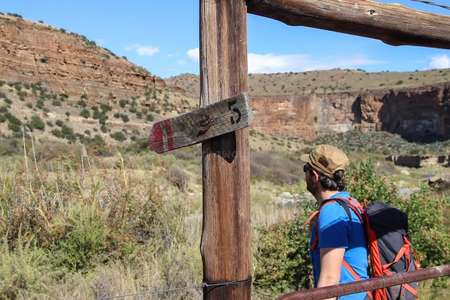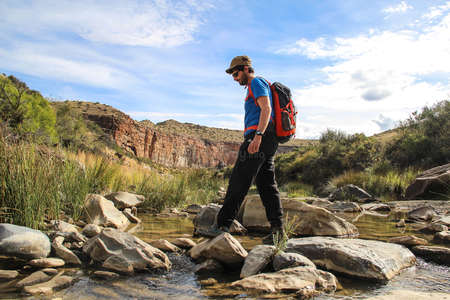
Stay on a sheep farm in South Africa “Where the land meets the sky”
Here at Workaway we now have an amazing 50,000+ opportunities and volunteer exchange projects available in many different parts of the world. Each host is unique and special to us. Once a month we make the difficult choice to highlight one and share it with you! Since there is such a variety of projects, communities, and cultures to choose from, we know you’ll be inspired to dive in deeper and learn about the every-day life of our hosts. Read more to find out how Workawayers like you have made a positive impact on our ‘Workaway Host of the Month’!
This time, we caught up with Hester who lives on a sheep farm in South Africa with his family. His vivid description of the beautiful landscape and the history of the region are out of this world. After just a glimpse of seeing the farm through his eyes, we know you’ll be dreaming of visiting soon!

Here you will still meet people who are very hospitable and friendly towards everybody. They care about each other and will go out of their way if there is a need – even for strangers. It was a wonderful experience for our children to be raised in the Karoo area. One finds that the Karoo people often return, or long to return to it, after a while in a city or else where in the world.
During shearing time we class the wool according to length and fineness of wool. We send it to an agent where it is sold on an auction in Port Elizabeth. From there it goes to various countries like Europe, India, China & Japan. We are also a stud farm where we breed rams which we offer on a production sale on the farm once a year to other farmers to breed with.

As soon as they can fend for themselves we get them to meet other groups of their own. First prize is that they get accepted, but unfortunately that is not always the case. Then we need to make up a group out of the ones that arrive here before returning them to the wild. We do not keep them in cages, afterwards like many places do that claim to be a rehab. We always set our animals free.
We are mostly known for meerkats, ground squirrels and owls but often have other species in too. Helen the Owl had the privilege to meet Trine from Denmark, a Workawayer, who taught her to be independent again. She stayed for a very long time in our garden after being released and eventually she wandered off by herself!
As many of them come from built up areas I think they find us living so far from a next neighbor or town quite surprising! Also the animals they might encounter is surprising for them. Another thing most of them comment on is the home cooked farm food they enjoy while staying here.

There is also the Bethesda Art Center where they can visit to see the handiwork of the local people – aplica work , lino cuttings etc. They can watch while they work too. On old years eve the Workawayers can partake in the yearly lantern parade through the town. If there is tennis club on a Saturday evening and we are free they go with us to socialize with the locals and have dinner in the form of a braai.
Wow! We’re completely sold and 100% convinced your farm makes a perfect escape to experience beautiful landscapes and rich culture of South Africa! Thank you so much Hester for opening your family farm and home to Workawayers.
Do you want to be our next WA Host of the month? We are always on the lookout for hosts who have a great story to tell! Email us to let us know and you could be in our next feature!

About Workaway
Here at the Workaway team we are lucky enough to witness all the amazing experiences enabled via the site and we'd love to share them with you too! From new and improved website features for our commu
Share the Workaway idea
1 comment
Join the Workaway community today to unlock unique volunteer experiences and free accommodation with over 50,000 opportunities around the globe.
Join Now






